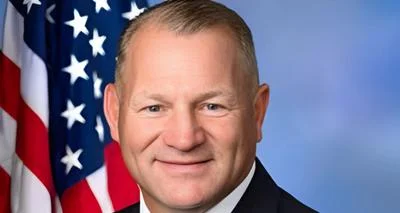The Subcommittee on Military and Foreign Affairs recently convened a hearing to discuss the National Guard State Partnership Program (SPP) and its role in enhancing U.S. security through international partnerships. The hearing, titled “The National Guard State Partnership Program: Strengthening U.S. Security, One Partnership at a Time,” focused on the program's contributions to regional stability and global security.
Christopher Mamaux, Deputy Assistant Secretary for Global Partnerships at the Department of Defense, emphasized the SPP's impact over three decades: “For over 30 years, the SPP has been developing relationships, increasing cooperation across the globe.” He highlighted that the program involves 115 partner nations aligned with all U.S. states and territories.
Major General William J. Edwards from the National Guard Bureau described the SPP as “a unique tool in the security cooperation toolbox,” emphasizing its unmatched ability to build enduring relationships with partner nations.
Major General Robin B. Stilwell of the South Carolina National Guard noted specific successes with Colombia: “[The South Carolina National Guard’s] strong relationship ensures continued access to and integration with Colombian military facilities.” He mentioned a significant improvement in Colombia's helicopter readiness due to joint initiatives.
The cost-effectiveness of the SPP was also discussed. Major General Edwards stated that in 2025, with a budget of approximately $55 million, the program will conduct over 1,000 engagements globally. He noted that this represents less than one percent of the U.S. security cooperation budget but accounts for nearly thirty percent of Geographic Combatant Command engagements.
Subcommittee Chairman William Timmons stressed evaluating resources allocated to ensure continued strategic benefits: “[We] must assess the resources that are provided to the program.”
Mamaux further underscored prioritizing partnerships aligned with key U.S. objectives: “Deepening existing relationships and prioritizing partnerships aligned with key U.S. strategic objectives... is a crucial step.”
During discussions, Rep. John McGuire raised concerns about funding and alignment with American interests if partnership nations diverge from these interests. Mamaux responded by explaining that dormant status is applied when partnerships become unfavorable.
Rep. Anna Paulina Luna asked how Congress could assist in resource allocation for national security efforts through programs like SPP. Major General Edwards requested predictability in funding to ensure effective planning and execution of engagements.
Overall, participants acknowledged SPP's vital role in fostering international military cooperation while advocating for enhanced support and resources from Congress.








